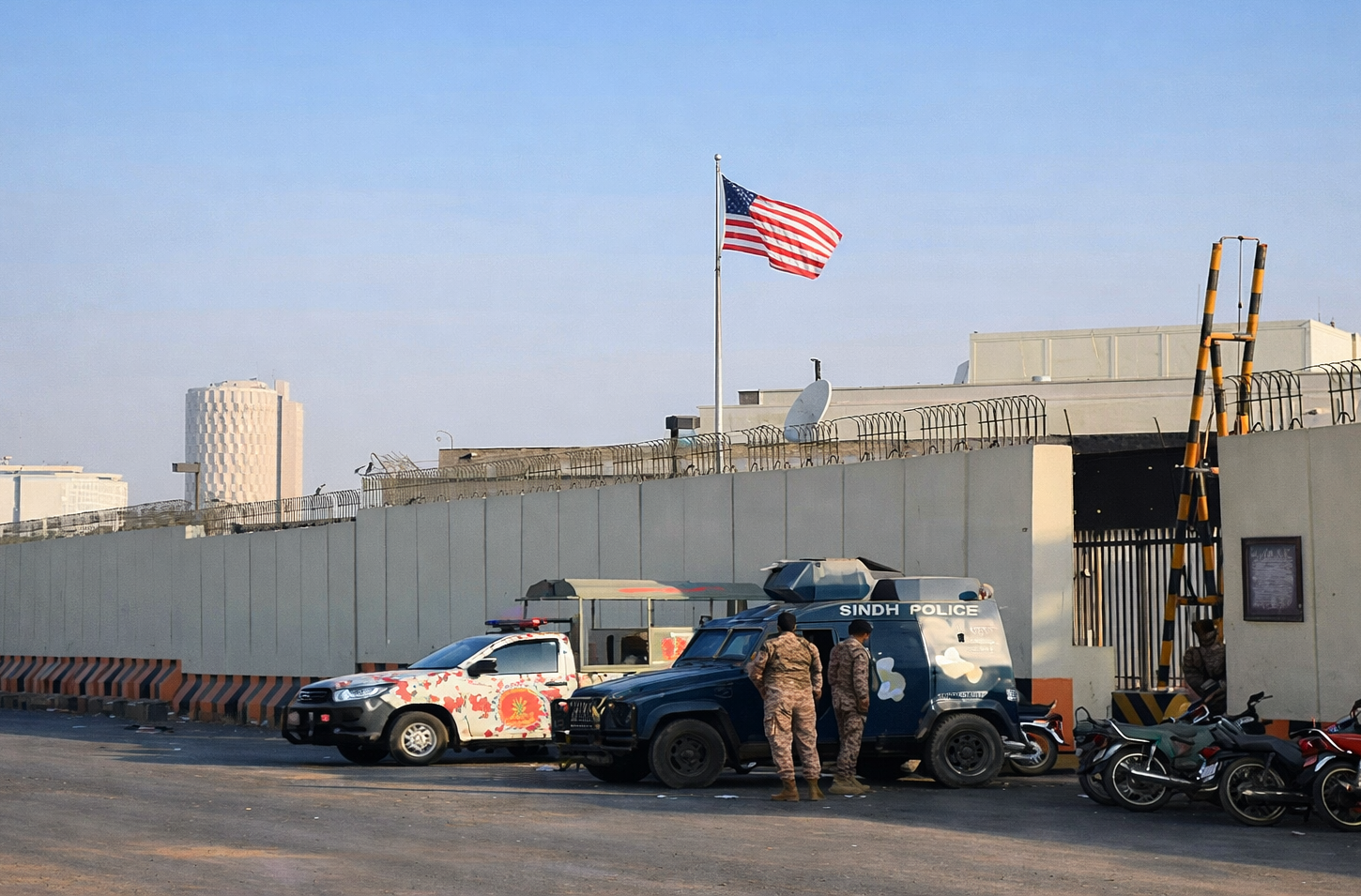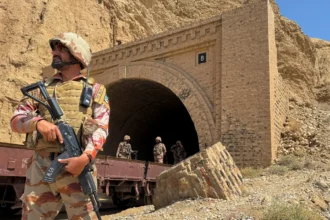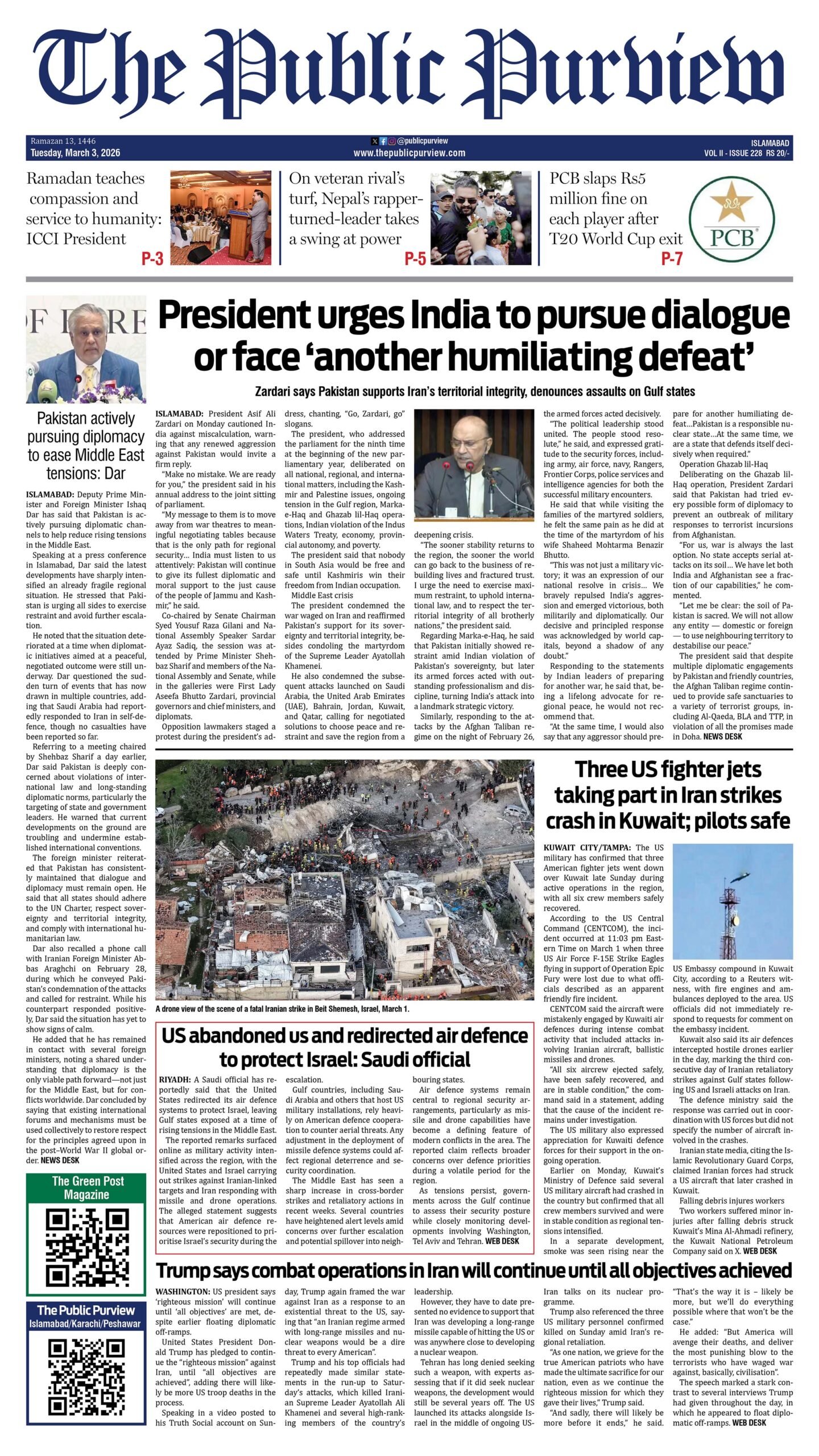
The recent meeting of parliamentary speakers from Türkiye, Pakistan, and Azerbaijan in Islamabad came at a critical juncture in South Asia, with Pakistan-Afghanistan relations teetering on the brink of open conflict. Both Türkiye and Pakistan have long played pivotal roles in stabilizing Afghanistan, particularly through diplomatic engagement and humanitarian assistance to the Taliban’s new administration. Amid growing distrust between Islamabad and Kabul, participants at the meeting underscored the urgent need for renewed mediation. With mediation being a cornerstone of Türkiye’s foreign policy, Ankara was urged to leverage its credibility, regional goodwill, and diplomatic influence to de-escalate tensions and guide both nations back toward dialogue and stability.
The Third Trilateral Speakers’ Conference, held from October 12–14, 2025, in Islamabad, marked a significant milestone in fostering parliamentary diplomacy among these brotherly nations. Chaired by Pakistan’s National Assembly Speaker Sardar Ayaz Sadiq, the gathering welcomed Türkiye’s Grand National Assembly Speaker Prof. Dr. Numan Kurtulmuş and Azerbaijan’s Milli Majlis Speaker Sahiba Gafarova. Kurtulmuş, leading the Turkish delegation, emphasized the deep spiritual and civilizational bonds uniting Türkiye and Pakistan, stating, “Our relations are not merely diplomatic but rooted in shared heritage and mutual support.” The conference culminated in the adoption of the Islamabad Declaration, a forward-looking blueprint pledging enhanced cooperation in trade, security, connectivity, and cultural exchange—initiatives poised to bolster regional peace and counter external challenges like climate disasters and geopolitical rivalries.
During these high-level discussions, Turkish parliamentarian Ali Şahin, a key member of the delegation and President of the Türkiye-Pakistan Inter-Parliamentary Friendship Group, extended his engagement beyond formal sessions. On a three-day visit to Pakistan, Şahin explored Lahore’s rich historical tapestry, including the iconic Badshahi Mosque and the mausoleum of Allama Iqbal—a poet-philosopher whose vision continues to inspire unity across Muslim civilizations. This personal immersion highlighted the human dimension of bilateral ties, evoking the shared legacy of the Khilafat Movement and figures like Mustafa Kemal Atatürk.
On October 14, 2025, as the conference concluded, Şahin amplified his reflections through a detailed post on X, outlining five visionary initiatives to strengthen Pak-Türkiye relations while addressing the volatile Pakistan-Afghanistan dynamic. In a subsequent conversation with the author, Shabana Ayaz, Şahin elaborated on his stance, emphasizing that these proposals not only aim to fortify Pak-Türkiye ties but also provide a comprehensive framework for regional stability. He highlighted the goal of uniting a strategic bloc of over 650 million Sunni, Maturidi, Hanafi populations across Pakistan, India, and Bangladesh, while leveraging Türkiye’s mediation capacity to foster lasting peace between Pakistan and Afghanistan. These ideas, deeply aligned with Kurtulmuş’s emphasis on fraternal solidarity, present a multifaceted strategy for stability:
First, establishing an AK Party representative office in Islamabad to nurture parliamentary diplomacy, educational exchanges, and cultural bridges within a strategic Sunni-majority bloc of over 650 million people spanning Pakistan, India, and Bangladesh. Second, developing a joint drone base at Gwadar Port—strategically located near the Strait of Hormuz—to safeguard maritime routes in the Arabian Sea and Indian Ocean, while aligning with the China-Pakistan Economic Corridor (CPEC) and addressing Indian concerns. Third, expanding collaboration in Gulf and Middle East security operations, including joint training and defense technology transfers to pioneer counter-terrorism models for the ummah. Fourth, inviting Pakistan as an “Engaged Partner” in the Organization of Turkic States, drawing on 700 years of Turkic influence in the subcontinent—from the Ghaznavids to the Mughals—symbolized by treasures like the Taj Mahal, and reinforced by Pakistan’s steadfast support for Azerbaijan in Karabakh. Fifth, and most critically, urging Türkiye to revive its mediation role between Pakistan and Afghanistan through the Ankara Trilateral Summit, dormant since the Taliban’s 2021 return but vital for sustainable peace.
These ideas resonate powerfully against the backdrop of escalating border tensions. On October 8, 2025, a deadly TTP ambush in Pakistan’s Orakzai district claimed 11 soldiers’ lives, prompting Islamabad to launch precision airstrikes on suspected militant hideouts in Afghanistan’s Kabul and Paktika provinces the following night. Explosions rocked Kabul near Abdul Haq Square, reportedly targeting TTP leader Noor Wali Mehsud and killing at least two senior commanders, though the group denied his death via an audio clip. Kabul condemned the incursions as sovereignty violations, retaliating with attacks on Pakistani border posts that seized positions and inflicted casualties on both sides—escalating fears of a broader conflagration. Border crossings like Torkham were shuttered for days, disrupting trade under China’s Belt and Road Initiative and exacerbating refugee outflows, with over 1.7 million undocumented Afghans in Pakistan facing phased repatriation pressures. The Durand Line disputes and mutual accusations of harboring militants like the TTP have compounded a “security dilemma,” worsened by Afghanistan’s warming ties with India.
Türkiye stands uniquely equipped to bridge this divide, drawing on its storied mediation legacy. Since the 1950s, Ankara has championed Pashtunistan dialogues, contributed non-combat forces to NATO’s Afghanistan mission post-9/11, and co-chaired the 2011 Istanbul Process for reconciliation. The Ankara Trilateral Summit, launched in 2007 under Foreign Minister Abdullah Gül, evolved by 2014 to include military and intelligence leaders, yielding pledges for joint patrols and intelligence-sharing to demilitarize the border. Even after 2021, Türkiye offered airport security in Kabul via Qatar and disbursed over $100 million in aid without formal Taliban recognition—preserving impartiality. Recent overtures, including Vice Chairman Efkan Âlâ’s pledge for “constructive contributions,” reflect this commitment.
A revived summit could operationalize de-escalation: phased ceasefires, confidence-building through backchannel talks with Qatari and Chinese partners, and economic incentives like Middle Corridor trade routes bypassing Russian disruptions. Türkiye’s drone prowess—exemplified by Bayraktar Akinci platforms Pakistan deployed against TTP targets—could underpin joint operations, building on 24 defense pacts signed in February 2025. Engaging the OIC for a peace roadmap could neutralize external interference, such as U.S. lingering interests in Bagram, informed by Türkiye’s 2021 Istanbul Conference. Lessons from Ankara’s Somalia-Ethiopia mediation—fostering trust through incremental dialogues—offer a replicable template, while soft power tools like joint media productions and student exchanges, as Şahin advocates, can humanize relations.
Challenges abound: balancing CPEC interests, navigating Taliban unpredictability, and addressing Indian sensitivities demand a calibrated, phased approach—from immediate halts to enduring integration. Yet, as Kurtulmuş and Şahin envision, Türkiye’s mediation can transform volatility into opportunity. A stable Afghanistan secures Pakistan; a fortified Pakistan uplifts Afghanistan—yielding dividends for the Muslim world and global conduits. Reactivating the Trilateral Summit promptly aligns with Ankara’s ethos of “mutual trust and constructive diplomacy,” heralding a new horizon of shared prosperity.







 Today's E-Paper
Today's E-Paper